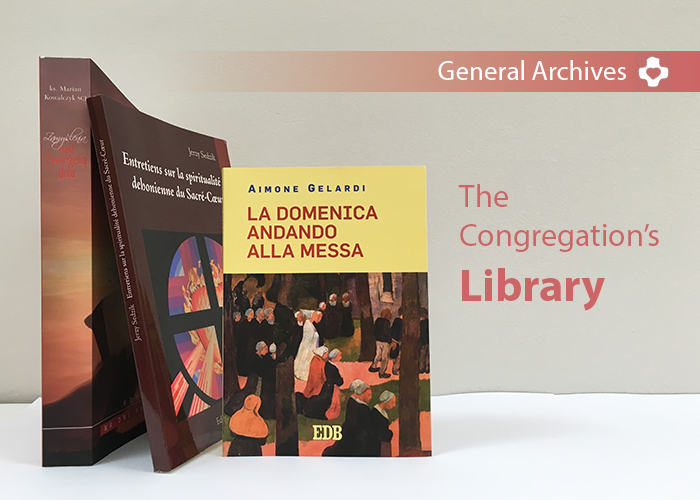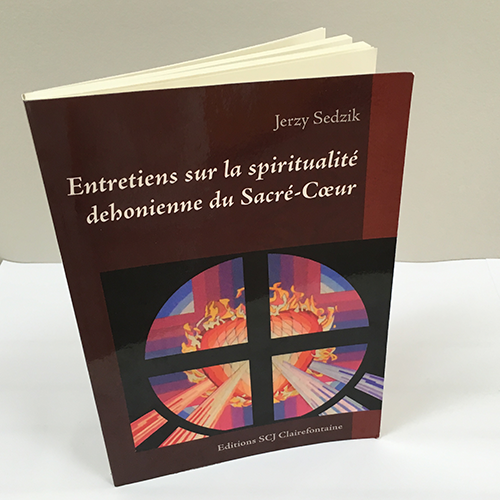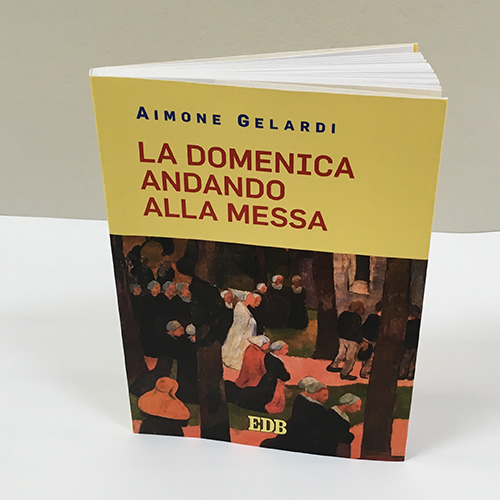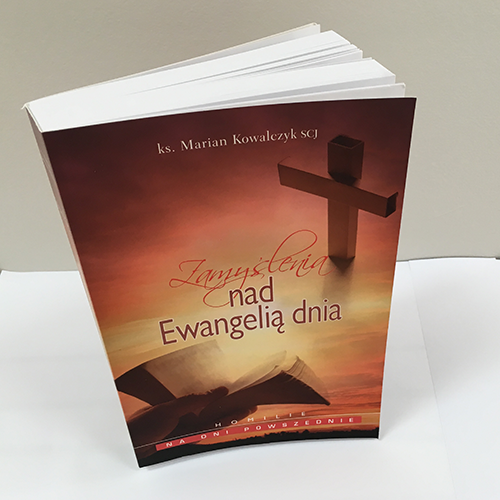
“Master, it is good that we are here. Let us make three tents, one for you, one for Moses and one for Elijah” (Lk 9:33) –– thus expresses Peter’s feelings on Mt. Tabor. To stay beside the transfigured Jesus is a privilege. He knew that the apostles Peter, John and James were there. He knows each of the Christians who try to “feel and taste the things of God” as expressed by St. Ignatius of Loyola. It was known by our founder, Fr. Leo John Dehon, as he did his spiritual exercises and then gave them to others. In meditation, reflection and prayer a person deeply enters into inner dignity, finding the importance of God the Creator of the world. In the world we live in today, there is so much need for silence and personal reflection. Meditation makes us stronger spiritually and reinforces the zeal of God.

In our congregation there are confreres who can help us with meditation to put our thoughts on paper. One of those whom we would like to present is Fr. Jerzy Sedzik, a former missionary in Congo and Cameroon who now works in the province that is the “Mother of the Congregation,” that is, the Franco-European Province. He was asked by his provincial to give a retreat to the confreres of the province gathered in Clairefontaine. Eventually the retreat was published under the title “Entretiens sur la spiritualité dehonienne du Sacré-Coeur”. The book contains 121 pages. The author presents the essential themes of the Dehonian charism (Contemplation to the open heart of Jesus, Eucharist, Eucharistic Adoration, Oblation, Reparation, the Social Activities of Fr. Dehon, Our Union with Christ). In the introduction of the book the author wrote: “Our love for God is expressed in the love of our brothers to the most needy through all these spiritual exercises that we maintain to deepen our personal union with Christ, which is an essential aspect of the Christian life.”

Our founder often explained how important the Eucharist is in our lives. It should be at the heart of the Christian life, the life of a religious of the Sacred Heart of Jesus. Today the Eucharist for many Christians has an important value. But those who do not understand the depth of the Eucharist and might not attend mass. Fr. Aimone Gelardi easily explains the meaning of Sunday and the Eucharist. As usual, in a small book he puts his thoughts down entitling it “La domenica andando alla messa” (On Sundays going to Mass). In the booklet, including many texts that explain the Sunday Eucharist, we find “The Sunday Eucharist, which in itself does not have a different status from that of other days, is special thanks to the wider community presence and the solemnity that characterizes it, because it is celebrated ‘on the day when Christ conquered death and gave us a share in his immortal life,’ manifested with particular emphasis its inherent ecclesial dimension. It is best manifested as the Lord’s day (dies Domini) and also, precisely because of the breaking of the Eucharistic bread and the bread of the Word, the Church day (dies Ecclesiae). It cannot escape the activities of the ecclesial community ‘none is as vital or formative… as the Sunday celebration of the Lord’s day and Eucharist’ (John Paul II). The Sunday Eucharistic assembly reveals the unity of the Christian community.”

Continuing thoughts on the Eucharist I would like to present a book by Fr. Marian Kowalczyk of the Polish Province, a priest who worked his whole life in pastoral ministry. The fruits of his work are weekday homilies written by him with examples from man’s daily life. The title tells us that these homilies are reflections on the Gospel. The original title: “Zamyślenia nad Ewangelią dnia”. It contains 544 pages.
P. Józef Golonka scj


